SUMMARY
This is AI generated summarization, which may have errors. For context, always refer to the full article.
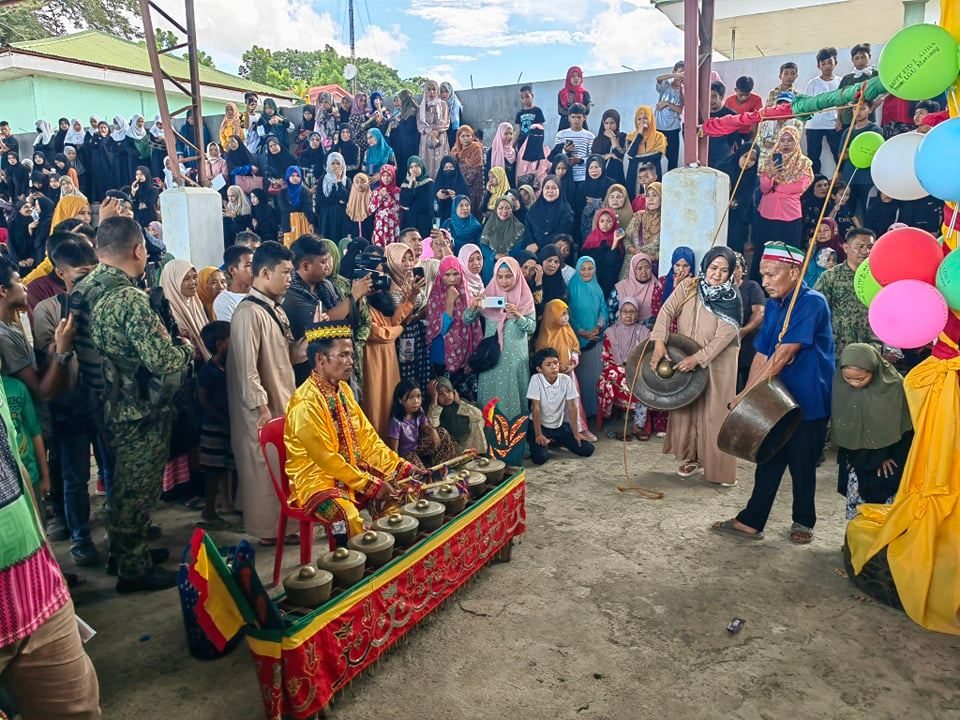
MAGUINDANAO DEL NORTE, Philippines – As the sun began to rise over Matanog in Maguindanao del Norte, a crowd gathered at the town center to mark the beginning of their municipality’s four-day annual celebration on Wednesday, June 28.
In time for Eid’l Adha, the Iranuns of Matanog started their days of jubilation, commemorating the extraordinary sacrifice of one of their revered religious figures. This time also serves as an occasion for joyous family reunions within the town.
Eid’l Adha, also known as the Feast of Sacrifice, stands as an important religious holiday observed by Muslims worldwide. It commemorates the willingness of Prophet Ibrahim (Abraham) to surrender his beloved son as an act of unwavering devotion to God.

The other major festival celebrated by Muslims is Eid’l Fit’r, the Feast of the Breaking of the Fast, which signals the end of the holy month of Ramadan.
In the predominantly Iranun Muslim town of Matanog, the national holiday on Wednesday heralded the start of a four-day festival. This festive period is characterized by communal prayers, acts of charity, and the ceremonial slaughter of livestock to distribute meat among family, friends, and the less fortunate.
Matanog Mayor Zohria Bansil-Guro said the town has been celebrating Eid’l Adha as a town festival for four days since 2010.
“Our religion has allowed us celebrate this festival aside from Eid’l Fitr. These are very special days for us, Muslims, here,” Guro said.
Nearly 1,000 Muslims belonging to the Iranun tribe gathered in downtown Matanog as early as 6 am.m to offer congregational prayers. Many others began the days of celebration in their respective communities and mosques.
After breakfast, three cows were slaughtered at the town center as part of the festivities.
Starting Wednesday, on the kickoff celebration of the Eid’l Adha Festival until the fourth day, they will observe Qurban, which involves sacrificing more cows.
The Qurban tradition originates from the narrative of Prophet Ibrahim and his readiness to sacrifice his son Ishmael.
The prophet, based on religious accounts, received a divine command to offer the ultimate sacrifice as a trial of his faith and obedience. Despite his affection for his son, he was determined to show his devotion to God by fulfilling the sacrifice.
Based on the religious narrative, before he could proceed, an angel intervened and conveyed that God acknowledged his willingness, substituting a ram to be sacrificed instead.
However, in modern times, customs and rituals have evolved to reflect the changing times.
Some donate money to organizations that help the poor, while others support local farmers by purchasing ethically-raised and slaughtered animals for sacrifice. The meat is then shared with the poor or distributed to needy neighbors and relatives.
Aleem Nooh Tarusan, a Muslim cleric and elder in the town, said the slaughtered cattle serve as a gateway or passage for every soul to reach heaven.
“The sacrificed lamb or cattle will be your vehicle to the righteous next life,” he said.
In fact, some individuals observe a nine-day fast before the day of Eid’l Adha to receive more blessings, which on the belief that it would help cleanse their sins from the previous year and the upcoming year.
In Maranog, one of the specialty foods prepared during Eid al-Adha is the famous Sinina menu of the Iranuns. It features beef, lamb, or goat cooked in coconut milk with ingredients such as local palapa (spiced and toasted grated coconut), curry, ginger, garlic, onions, tomatoes, soy sauce, and peppers.
After showcasing traditional Moro dances and playing kulintang, gongs, and other traditional musical instruments, and engaging in Quran reading activities, attendees can enjoy a variety of good food.
Present-day celebrations also include parlor games and singing Moro songs. – Rappler.com
Add a comment
How does this make you feel?


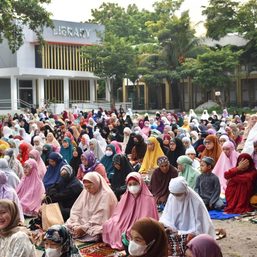
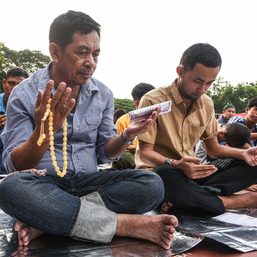

![[The Wide Shot] Peace be with China](https://www.rappler.com/tachyon/2024/07/wideshot-wps-catholic-church.jpg?resize=257%2C257&crop=311px%2C0px%2C720px%2C720px)
![[OPINION] A critique of the CBCP pastoral statement on divorce](https://www.rappler.com/tachyon/2024/07/TL-cbcp-divorce-statement-july-19-2024.jpg?resize=257%2C257&crop=285px%2C0px%2C722px%2C720px)
![[REFLECTION] Mary, Mother of the West Philippine Sea](https://www.rappler.com/tachyon/2024/07/may-mother-west-ph-sea-july-19-2024.jpg?resize=257%2C257&crop=293px%2C0px%2C751px%2C750px)
![[OPINION] Ignorance and prejudice](https://www.rappler.com/tachyon/2024/07/tl-ignorance-and-prejujdice.jpg?resize=257%2C257&crop_strategy=attention)











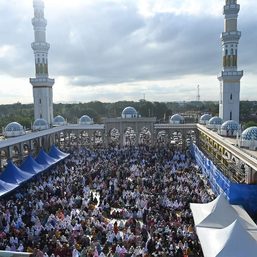
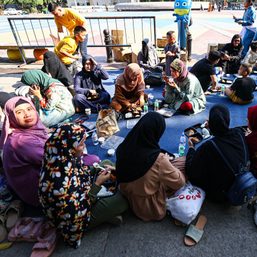
There are no comments yet. Add your comment to start the conversation.